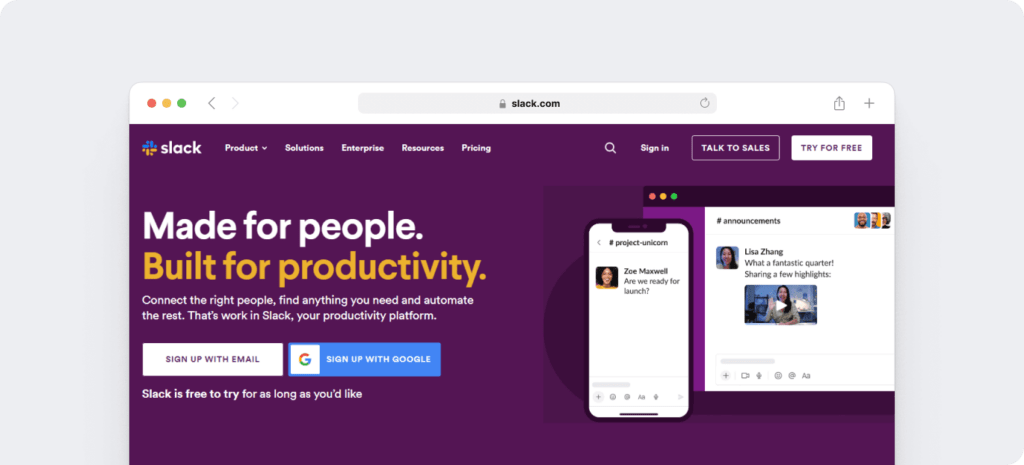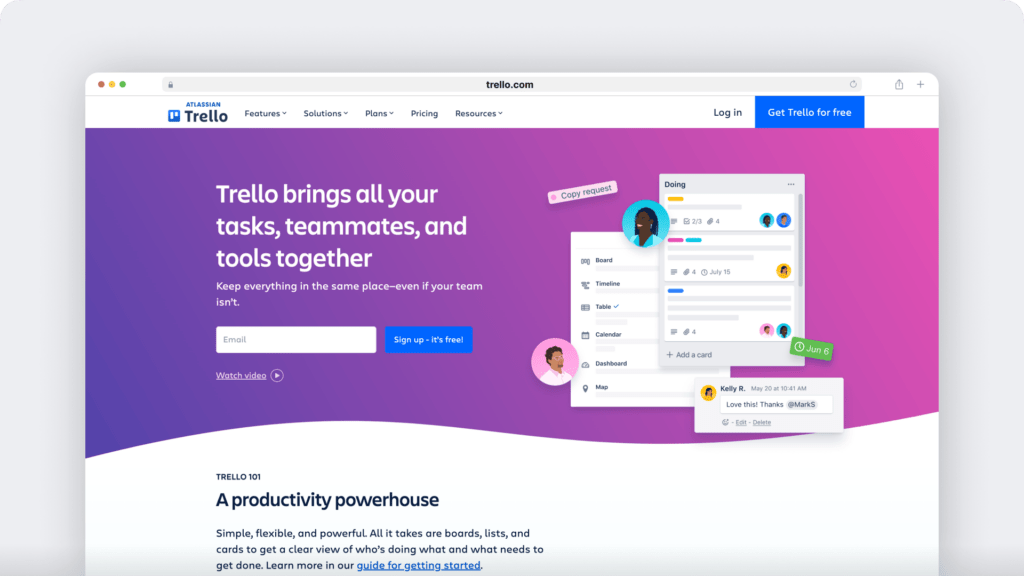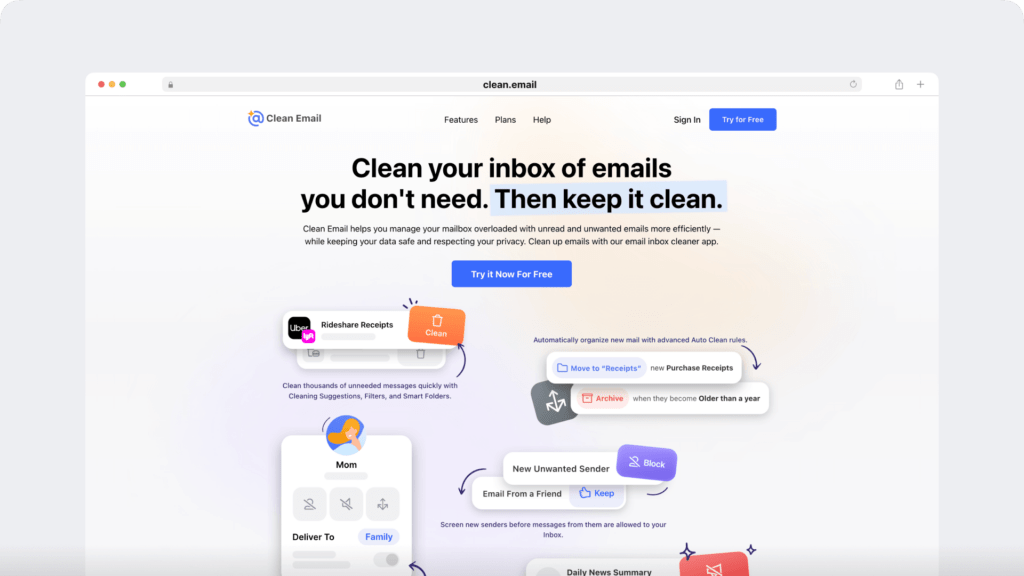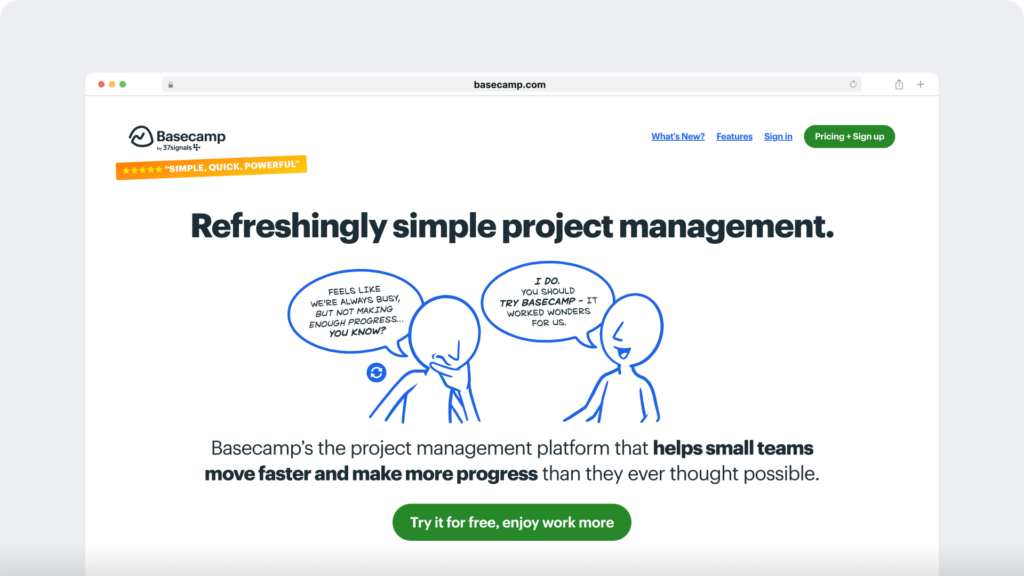To manage a distributed team, you need solutions for keeping everyone connected, tracking tasks and projects, and monitoring time and schedules to maximize productivity across time zones.
But to choose the right remote workforce management software, you have to consider several factors, including:
- Does this platform fit into my budget, especially as my team grows?
- Will this app work with the other software I already use?
- Can I get my team on board and convince them to use the software?
This article explores the top tools for managing remote employees to help your business operate more efficiently and enable your team to work better from anywhere. We’ll cover everything from key features to pricing so you can make the best software decision for your remote team.

What we’ll cover
- How we came up with this list of remote workforce management software
- The top 11 tools and software to manage a remote team
- Quick comparison of the 11 best remote workforce management tools
- Frequently Asked Questions (FAQs)
How we came up with this list of remote workforce management software
To compile this list, we considered both the biggest challenges and the primary goals for team managers juggling remote work policies. To manage remote workers, you need solutions that can help you perform specific functions:
- Time tracking apps to organize employee schedules and generate timesheets
- Project management software for planning tasks and forecasting hours
- Team communication tools to share news and keep everyone in the loop
- Collaboration platforms where teams can work together in one place
Although no all-in-one app can handle everything a remote or hybrid workforce needs, many task management tools help you work together and save time. That’s why we ultimately zeroed in on solutions with the following:
- Integrations: Apps that sync with other platforms allow you to share data and work smarter. We looked for remote team management tools that integrate with other apps to create efficient systems.
- Scalability: Building a tech stack with the right tools can get expensive quickly. We sought software designed to help remote teams work better as they grow—without overcharging for every seat.
- Employee buy-in: Getting employees to adopt new technology isn’t always easy, especially if they’re overly invasive. We prioritized remote work tools that maintain privacy and give employees options.
The top 11 tools and software to manage a remote team
With these elements in mind, let’s walk through the best tools and apps for distributed teams. We’ll start with our remote work software, Time Doctor.
1. Time Doctor: Best for workforce analytics

Time Doctor is a workforce analytics platform that helps remote and hybrid teams work smarter with real-time visibility and actionable insights. Designed to empower managers to lead with trust, not control, it transforms raw activity data into clear productivity trends and coaching opportunities. Whether your team works across time zones or in the same office, Time Doctor makes productivity data transparent and accessible so you can plan better, support well-being, and drive performance at scale.
Key features
- Smart time tracking: Interactive or automatic tracking captures work hours, projects, and tasks across desktop and mobile—no micromanagement required.
- AI-powered insights: Benchmark performance trends, detect bottlenecks, and uncover opportunities for efficiency and improvement.
- Scheduling and attendance: Create one-off or recurring shifts and instantly spot who’s on time, late, or at risk of burnout.
- Privacy-first monitoring: Track apps, websites, and activity with trust-enhancing controls like optional screenshot blurring and employee dashboards.
- Payroll & compliance: Automate timesheets and payroll approvals while meeting SOC 2, ISO 27001/27701, HIPAA, and GDPR standards for data protection.
- Deep integrations: Connect seamlessly with 60+ tools, including Asana, Trello, Slack, HubSpot, and Zendesk, to streamline workflows and reduce IT overhead.
- Actionable reports: Get instant insights into productivity, attendance, and workload balance to coach teams effectively and improve decision-making.
Why it stands out
Unlike traditional monitoring tools, Time Doctor focuses on transparency over surveillance. Its Benchmarks AI, intuitive UI, and global support help distributed teams improve accountability without compromising trust or autonomy.
Pricing
Time Doctor offers a 14-day free trial, with paid plans starting at $6.70 per user/month (billed annually).
2. Slack: Best for team communication

Slack is a messaging app that helps teams discuss projects, organize conversations, manage communications, and meet to collaborate on projects.
Key features
- Searchable conversation channels for specific topics, projects, or clients
- Team chat tools and resources that let you build a virtual office
- Video chats and screen-sharing tools for remote teams to work in sync
- Collaboration tools to connect with team members in different organizations
- Integrations with 2,000+ tools for productivity, file sharing, and software developers
Why it stands out
Slack’s intuitive interface and deep integrations make it the central hub for remote teamwork, keeping discussions, documents, and decisions in one accessible place—reducing email overload and boosting productivity.
Pricing
Slack has a free version that includes basic features. Paid plans for this team collaboration tool start at $7.25/user per month (when billed annually).
3. Trello: Best for task management

Trello is a project and task management platform that allows teams to create to-do lists, build workflows, and link files in one place while working remotely.
Key features
- Dashboard, timeline, and calendar views to visualize team tasks and projects
- Automation software that helps streamline work and allows custom rules
- Templates that help you set up projects and assign tasks quickly
- Actionable insights allow your team to distribute work fairly
- Power-ups and integrations with popular tools for more efficient workflows
Why it stands out
Trello’s visual simplicity and low learning curve make it one of the easiest ways for distributed teams to plan, track, and collaborate—no project management experience required.
Pricing
Trello has a relatively robust free version. This project management tool also has paid plans that start at $5/user per month (when billed annually).
4. Scoro: Best for client management

Scoro is a professional services automation platform that streamlines customer data, handles project management, and forecasts sales.
Key features
- Project planning and task distribution tools, including Kanban boards
- Calendar and team views to improve resource allocation and capacity management
- CRM tools available to manage sales pipelines and track sales goals
- Quotes and invoices for customers as well as receipts and expense tracking for teams
- Integrations with 1,000+ software tools to keep your team productive
Why it stands out
Scoro unites project, client, and financial data in one system—giving teams complete visibility into profitability, utilization, and workflow efficiency.
Pricing
Scoro subscriptions start at $19.90/user per month (when billed annually). This remote work software doesn’t have a free version.
5. Clean Email: Best for inbox management

Clean Email is an email management tool designed to help users organize, declutter, and automate their inbox workflows. It’s ideal for professionals and teams looking to reduce email overload and keep their communication productive.
Key features
- Bulk email organization that automatically sorts, archives, or deletes messages based on custom rules
- Unsubscriber tool to remove all unwanted newsletters and promotional emails in one click
- Pre-screening system to filter messages from unknown senders before they reach your inbox
- Smart Folders that automatically group emails based on similar criteria
- Privacy-first approach that ensures no data is shared or sold
Why it stands out
Clean Email turns inbox chaos into calm with powerful automation and privacy-first design, saving hours of manual cleanup for busy professionals.
Pricing
Clean Email offers a free trial with access to all premium features. Paid plans start at $9.99/month for one email account, with family and team plans available.
6. Miro: Best for creative collaboration

Miro is a platform that helps distributed teams brainstorm, design concepts, and build roadmaps together across different time zones.
Key features
- Virtual whiteboards that let everyone on the team share ideas and take notes
- Visual workspaces that let remote workers brainstorm with sticky notes and emojis
- Team meeting options like mind maps, live reactions, and anonymous voting
- Drawing tools for diagramming and built-in clocks for time tracking
- Integrations with a long list of the best communication and collaboration apps
Why it stands out
Miro combines creativity and structure, helping distributed teams brainstorm and build together as if they were in the same room.
Pricing
Miro has a free forever version that includes three boards. Paid plans start at $8/user per month (when billed annually).
7. Zoho WorkDrive: Best for cloud storage

Zoho WorkDrive is a cloud-based file management app that supports shared workspaces and team collaboration.
Key features
- Shared folders that support team document management and real-time editing
- Access reports and audit trails that simplify remote work management
- Automated file backups that are accessible on desktop or mobile devices
- Role-based permissions for added security across your team
- Seamless integrations with Zoho Office Suite for collaborative work
Why it stands out
Zoho WorkDrive provides enterprise-grade security and collaboration at SMB-friendly pricing, ensuring files stay organized, accessible, and compliant.
Pricing
WorkDrive has a free trial and paid plans that start at $2.50/user per month (when billed annually).
8. Zoom: Best for team meetings

Zoom is a communication platform that supports virtual meetings, team chats, and collaborative workspaces.
Key features
- Video conferencing that connects workplaces and shares screens in real time
- Webinar options for sharing resources with new hires and large audiences
- Chats to keep your team up to date and start video calls or meetings
- Whiteboard tools to help your team visualize projects and collaborate
- Integrations with the best remote work software, including file-sharing tools
Why it stands out
Zoom remains the gold standard for virtual communication, combining reliability, simplicity, and scalability for teams of any size.
Pricing
Zoom has a free forever plan that supports meetings up to 40minutes long. Subscriptions start at $13.33/user per year (when billed annually).
9. Sign In Scheduling: Best for client appointments

Sign In Scheduling is an appointment booking app that streamlines client bookings and syncs with the calendar apps your team members already use.
Key features
- Booking engine that handles virtual and in-person appointments
- Payment processing portal that accepts fees for consultations and services
- Attendance tracking and team management system that works across time zones
- Automated reminders to increase attendance and streamline services
- Integrations with 5,000+ apps to help teams automate scheduling and client management
Why it stands out
Sign In Scheduling seamless scheduling automation that reduces no-shows and keeps teams organized across time zones—perfect for client-facing remote work.
Pricing
Pricing depends on region, billing frequency, number of users, appointments, staff logins, and features.
10. Culture Amp: Best for employee engagement

Culture Amp is an employee experience tool designed to improve engagement and enhance company culture for in-office and remote teams.
Key features
- Check-ins and 1-on-1 meetings for better feedback and more transparency
- Goal tracking to help both managers and remote workers stay on track
- Skills coach to get your team to level up, even when they work from home
- Turnover prediction to identify issues and improve talent retention
- Integrations with HR software and payroll tools to make managing remote teams easier
Why it stands out
Culture Amp connects employee feedback with actionable insights, giving leaders the data they need to build happier, higher-performing teams.
Pricing
Culture Amp has paid plans that start at $4/user per month.
11. Basecamp: Best for project management

Basecamp is project management software that supports task scheduling, remote collaboration, and file sharing for teams and clients.
Key features
- Gantt- and Kanban-style setups for project planning and task management
- Messaging and group chats that allow async discussions and replace emails
- To-do lists that keep your team on track to complete tasks before deadlines
- File storage space where teammates can share and discuss project files
- Integrations with design, database, CRM, and other tools your team uses
Why it stands out
Basecamp shines for teams that want simplicity over feature overload—combining communication and project management in one intuitive workspace.
Pricing
Basecamp has paid subscriptions that start at $15/user per month.
Quick comparison of the 11 best remote workforce management tools
| Tool | Best for | Key features | Starting price |
| Time Doctor | Workforce analytics | Smart time tracking, AI-powered insights, scheduling & attendance, privacy-first monitoring, payroll automation, deep integrations | $6.70/user/month (billed annually) |
| Slack | Team communication | Chat channels, video calls, file sharing, 2,000+ integrations, searchable conversations | Free plan available; Paid plans start at $7.25/user/month (billed annually) |
| Trello | Task management | Kanban boards, timeline view, automation, templates, power-ups, and integrations | Free plan available; Paid plans start at $5/user/month (billed annually) |
| Scoro | Client management | Project planning, CRM, invoicing, budgeting, and reporting | $19.90/user/month (billed annually) |
| Clean Email | Inbox management | Smart Folders, bulk cleanup, unsubscribe automation, privacy-first email organization | $9.99/month (1 email account) |
| Miro | Creative collaboration | Virtual whiteboards, brainstorming, mind maps, live reactions, and integrations | Free plan available; Paid plans start at $8/user/month (billed annually) |
| Zoho WorkDrive | Cloud storage | Shared folders, real-time editing, audit trails, role-based access, automated backups | $2.50/user/month (billed annually) |
| Zoom | Team meetings | Video conferencing, webinars, chat, whiteboards, and screen sharing | Free plan available; Paid plans start at $13.33/user/year (billed annually) |
| Sign In Scheduling | Client appointments | Online booking, payment processing, automated reminders, attendance tracking | Free plan (up to 10 appointments); Paid plans start at $7.20/user/month (billed annually) |
| Culture Amp | Employee engagement | Performance tracking, feedback, goal setting, turnover prediction, HR integrations | $4/user/month |
| Basecamp | Project management | Task lists, message boards, file storage, real-time collaboration, group chats | $15/user/month |
Frequently Asked Questions (FAQs)
The best tool for small teams depends on the specific needs of the team. Tools like Trello for task management or Slack for communication are popular choices due to their intuitive interfaces, affordability, and robust free plans. For time tracking and productivity, Time Doctor offers comprehensive insights ideal for small teams.
Remote workforce tools streamline team workflows, simplify communication, and improve task organization. For example, time tracking apps can reveal productivity patterns, while project management tools like Basecamp help teams stay organized and focused. Together, these tools foster accountability and efficiency.
Yes, communication tools like Slack and Zoom help remote teams stay connected. They offer instant messaging, video calls, and integrations with other apps, reducing email reliance and facilitating real-time collaboration. These features enhance teamwork and help remote employees feel more connected.
Several remote workforce tools offer free versions, including Slack, Trello, and Zoom. These free plans often include basic features sufficient for small teams, while premium features can be unlocked with paid plans.
Essential features include time tracking, task management, team communication, and integration capabilities. For example, Time Doctor offers advanced time-tracking, Slack provides seamless communication, and Trello enables task organization. Choose tools that fit your team’s specific needs.
To choose the best software, consider your team’s size, budget, and work style. Look for tools that are easy to integrate with your current tech stack and offer scalability as your team grows. Testing software with free trials is a great way to assess fit before committing.
No single tool covers every remote management need, but platforms like Time Doctor combine time tracking, productivity insights, and scheduling features. Many teams use a combination of tools, like Slack for communication and Trello for task management, to meet all their needs.
Most remote management tools support integrations with popular software. Time Doctor, for instance, integrates with project management tools like Asana and Trello and communication tools like Slack. This allows seamless data flow and improves workflow efficiency.
These tools simplify managing remote teams by streamlining communication, tracking productivity, organizing tasks, and enhancing accountability. They help managers oversee projects and support employees’ efficiency, ultimately contributing to better team performance.
AI-powered tools use data to show how work happens in real time—without invasive monitoring. They detect unusual patterns, track compliance risks, and surface performance insights automatically. For example, Time Doctor’s Benchmarks AI and Unusual Activity Report help managers spot workflow issues and maintain transparency while protecting employee privacy.

Carlo Borja is the Content Marketing Manager of Time Doctor, a workforce analytics software for distributed teams. He is a remote work advocate, a father and an avid coffee drinker.


